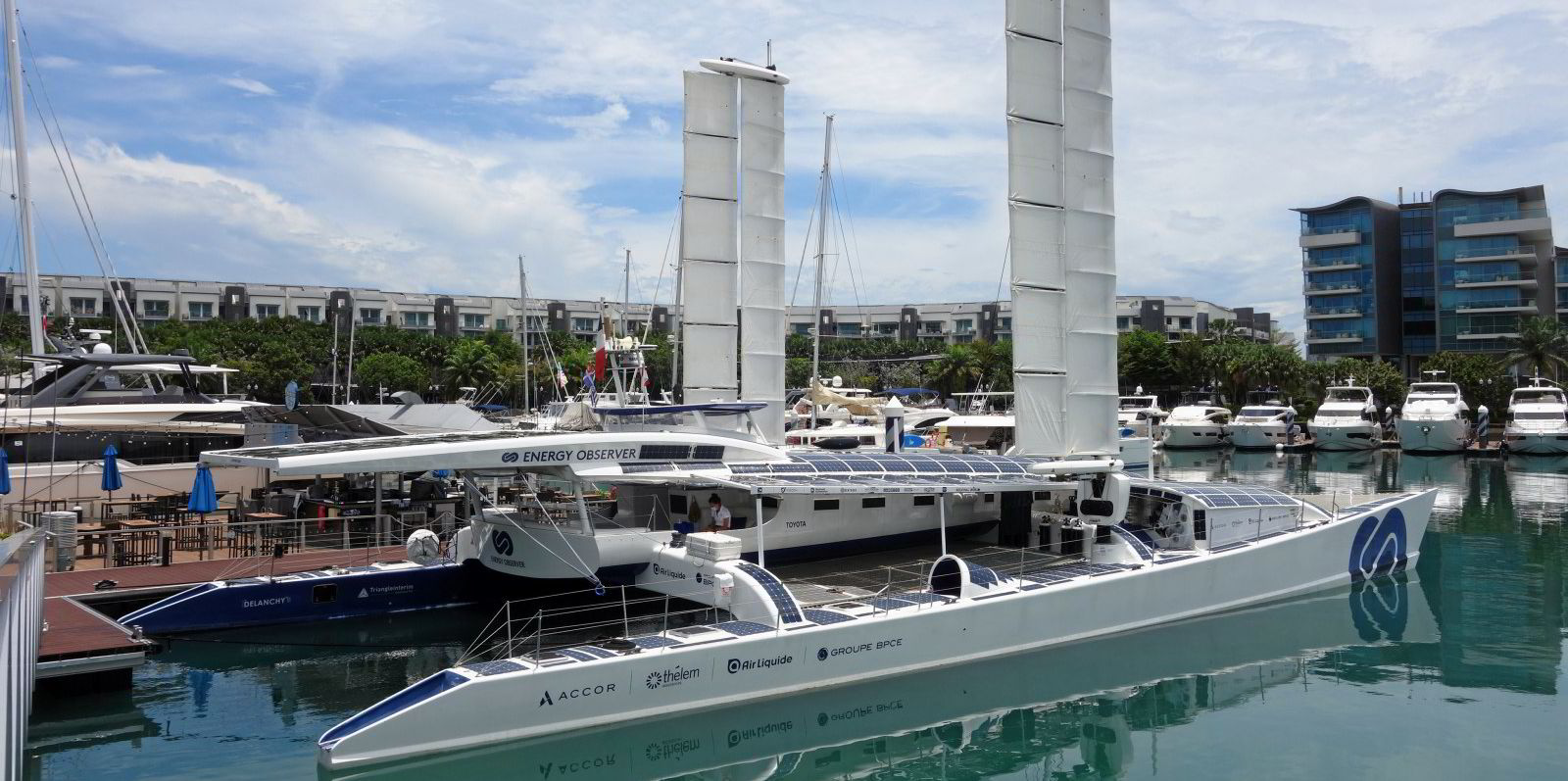Hydrogen is primarily seen as a fuel for vessels that travel short distances, such as tugs and ferries.
But the Maritime Research Institute Netherlands (Marin) wants to know whether wind can give hydrogen-fuelled ships a push.
While hydrogen is carbon-free, its low energy density means it takes up more storage space than other fuels, making it a tough sell for long-haul vessels, except through “carrier” fuels such as ammonia or methanol that have hydrogen as an ingredient.
Moritz Krijgsman, who leads the marine power systems team at Marin, said hydrogen’s properties will not change, but the institute is looking closely at combining the fuel with wind-assistance technology.
“There is one very interesting solution for the endurance and that is to combine it with wind assist,” he told TradeWinds.
Krijgsman believes adding wind propulsion could extend the range of a hydrogen-fuelled vessel by 30% to 40%.
The maximum range of future hydrogen-fuelled vessels is expected to be “a few thousand” nautical miles. An Atlantic crossing, with wind added, might be possible.
But wind-propelled, hydrogen-fuelled ships might have to operate differently.
“You might have to adjust the course during your journey because of the direction of the wind,” he said. “So it might take somewhat longer. The trip might be longer in miles and longer in time.”
But longer voyages are already something that shipping is warming to, as speed reductions are seen as a way to reduce the carbon footprint.
The combination of wind and hydrogen might also lead to less logistical reliability.
“It could be that there’s not enough wind to do the crossing, like we had a few centuries ago, so that will be a new challenge,” Krijgsman said, quipping that the supply chain crisis has given a “dress rehearsal” in waiting weeks for goods.
Ultimately, any solution will be weighed up against the economics of synthesising hydrogen carrier fuels.
“It’s very questionable whether pure hydrogen will ever come and will ever be able to compete with synthetic fuels,” Krijgsman said.





